Iran-Russia nuclear deal: World teeters on the brink of WWIII as West fears Moscow has given Tehran nuclear bomb secrets in swap for missiles to hit Ukraine
There are fears that Russia has transferred secrets about nuclear bombs to Iran in exchange for missiles to be used to target Ukraine. Concerns are growing in the West that the world is on the brink of World War III.
The terrifying prospect was discussed during a meeting between US President Joe Biden and British Prime Minister Keir Starmer at the White House on Friday.
If the deal is confirmed, it will raise major concerns as Tehran seeks to continue its uranium enrichment program as a step toward developing a nuclear weapon.
British sources said alarm bells were being raised over Iran’s trade in nuclear technology, a move feared to be part of an increasingly close alliance between Tehran and Moscow.
Last week, the US and UK released key information revealing that Russian President Vladimir Putin had accepted a shipment of Fath-360 ballistic missiles from Iranian Supreme Leader Ali Khamenei.
There are fears that tyrannical Russian President Vladimir Putin has given Iran nuclear weapons secrets in exchange for missiles to bombard Ukraine
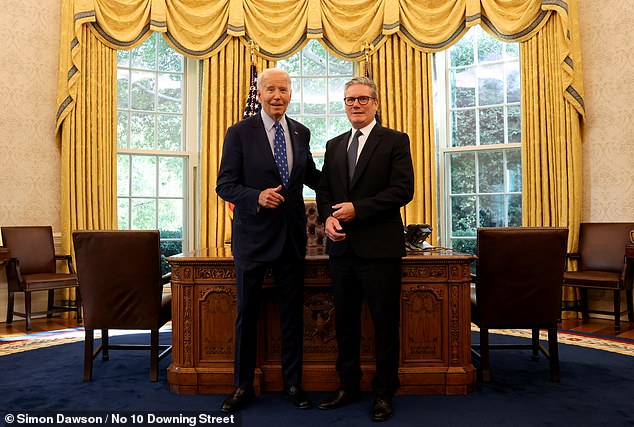
The terrifying prospect was discussed during a meeting between US President Joe Biden and British Prime Minister Keir Starmer at the White House on Friday
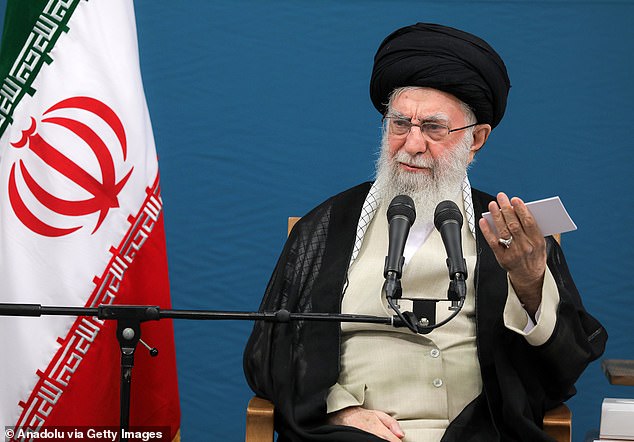
Putin received a shipment of Fath-360 ballistic missiles from Iranian Supreme Leader Ali Khamenei (photo)
After the speech, US Secretary of State Anthony Blinken shared a chilling warning during a visit to London with his British counterpart, David Lammy.
“Russia, in turn, shares technology that Iran wants. It’s a two-way street, including on nuclear issues and also some space information,” Blinken said, suggesting that Russia and Iran are engaged in destabilizing activities with global implications.
As a result of the missile delivery, Iran Air is no longer allowed to fly over or land in Britain. Sanctions have also been imposed on Russian shipping companies for their role in transporting the weapons.
During the White House summit, talks were held on allowing Ukraine to use British-made Storm Shadow missiles to strike military targets on Russian soil, but no final decision has been made.
A Western official, speaking on condition of anonymity, told PBS that no announcement about approval of the strikes is likely until “the first missile lands.”
Although Britain, France and Germany warn Tehran that it has expanded its uranium stockpile, it is not yet certain whether the country has the capacity to build a nuclear weapon.
However, cooperation with experienced Russian specialists or the use of Russian intelligence services could speed up the production process. Iran even denies that it is trying to build a nuclear bomb.
Since Russia’s large-scale invasion of Ukraine in February 2022, relations between Russia and Iran have deepened to an unprecedented level.
Their military cooperation has continued to grow at an alarming rate, with Iran becoming a key member of Russia’s air and ground campaign in war-torn Ukraine.
Since the brutal invasion, Iran has been supplying Shahed drones to Moscow, which are used to bomb Ukrainian cities.
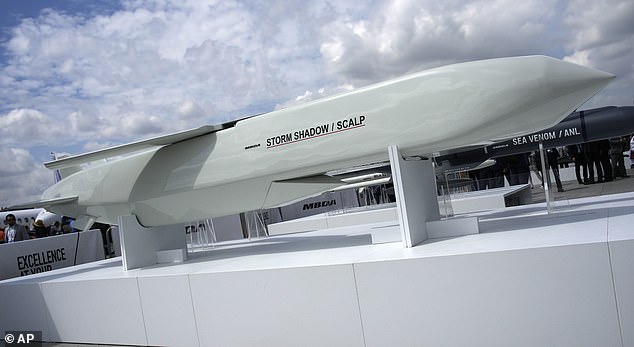
The White House summit included talks about allowing Ukraine to use British-made Storm Shadow missiles to bomb military targets on Russian soil
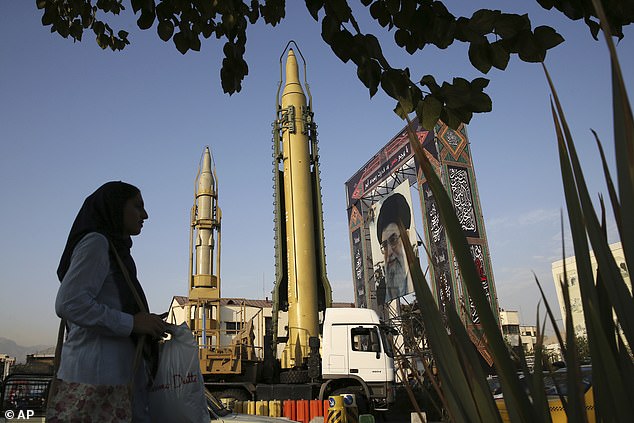
Pictured: A Ghadr-H missile (center), a solid-fuel Sejjil rocket and a portrait of Iranian Supreme Leader Ayatollah Ali Khamenei
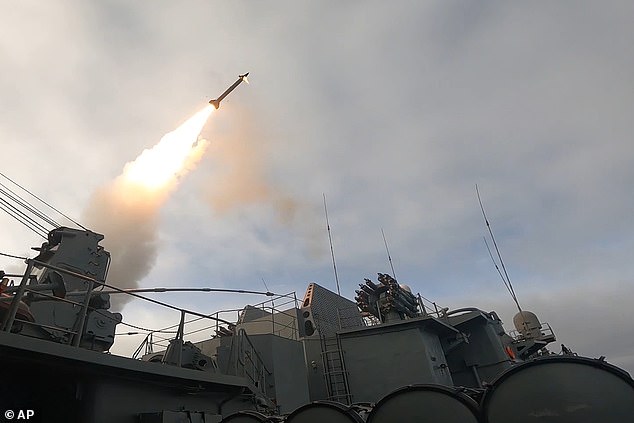
Russia and Iran, though not historically allied, have increasingly hardened their opposition to the West. Pictured: Russian rocket launched into the Arctic Ocean on September 12, 2024
In addition, Tehran is said to have helped Russia set up a factory to produce more drones for use in the ongoing conflict.
Iran struck a deal in 2015 to stop developing nuclear weapons in exchange for sanctions relief against the US and other Western countries, but the deal was revoked by former US President Donald Trump in 2018.
Iran retaliated by exceeding agreed limits on the amount of enriched uranium it could stockpile.
Concerns about Iran’s possible development of nuclear weapons have been growing for months and are now also causing increasing fear in the Middle East.
Iran’s support for militant groups such as Hamas and Hezbollah has made the country’s nuclear activities a major concern for Israel, as the possibility of Iran obtaining a nuclear weapon is seen as a direct threat by Jerusalem.
This comes as Tehran’s allies in Lebanon and Gaza continue to repeatedly challenge the Israeli military.
In April of this year, Iran launched a Russian missile and drone attack on Israel, which was intercepted and stopped with the help of the US and the UK.
Russia and Iran are not historically allied, but they are increasingly opposing the West.
This has led to what some analysts call an “axis of revolution,” which includes China and North Korea. It is a return to an era of state struggle reminiscent of the Cold War.
After Friday’s crucial talks, Starmer will travel to Italy tomorrow, where he is expected to discuss the use of Storm Shadows deep inside Russia, given the Italian interest in the weapons system.
British sources claim the prime minister would then encourage the French and Germans to reiterate his support for the crucial increase in Western aid for Ukraine.
